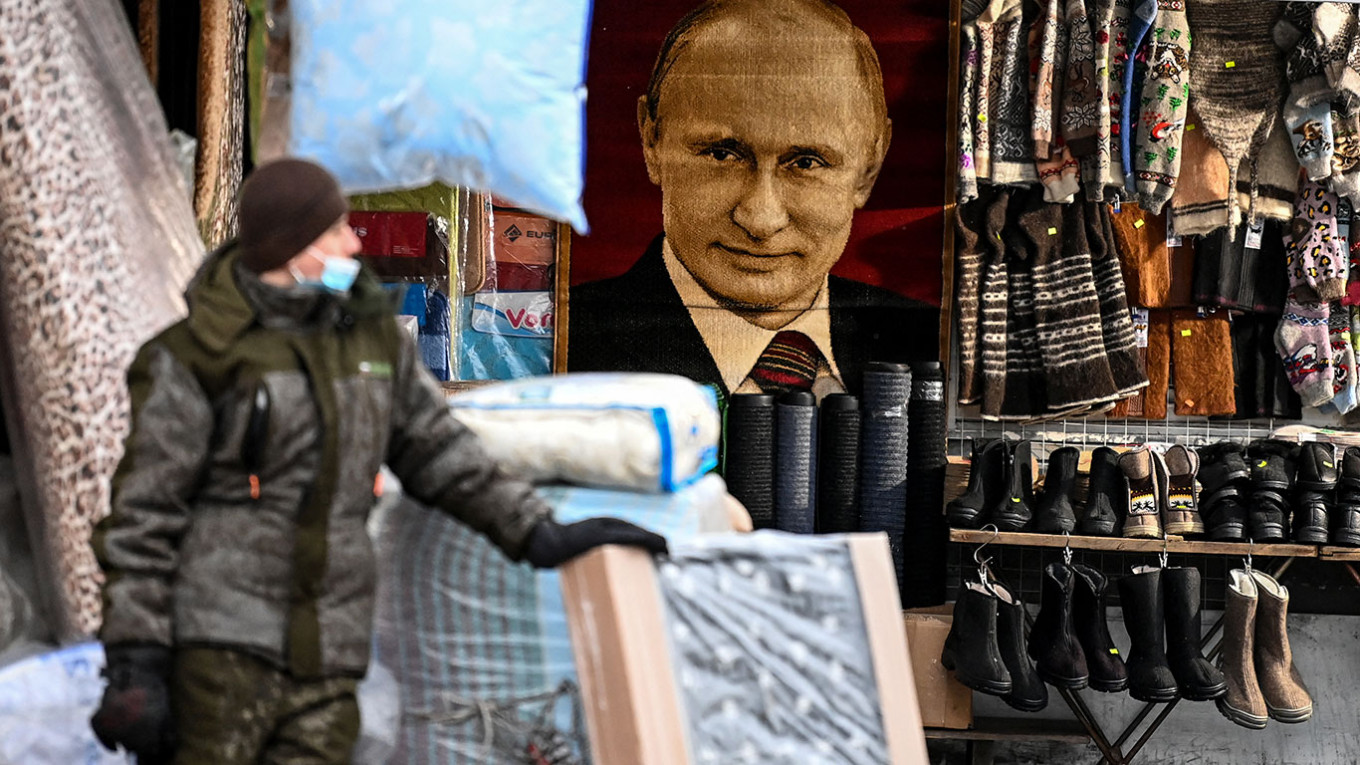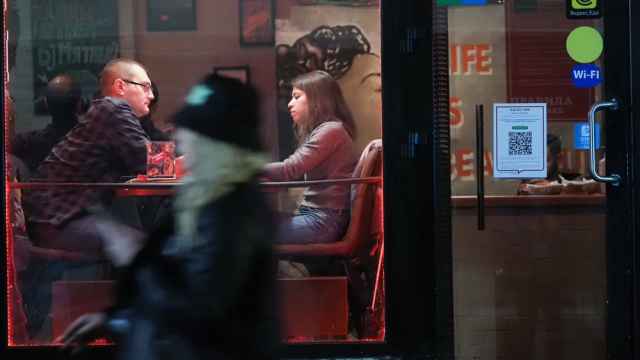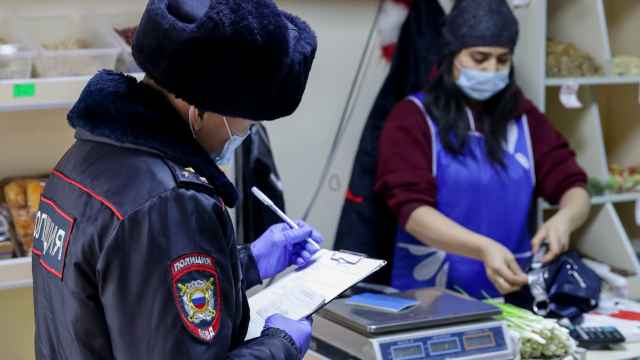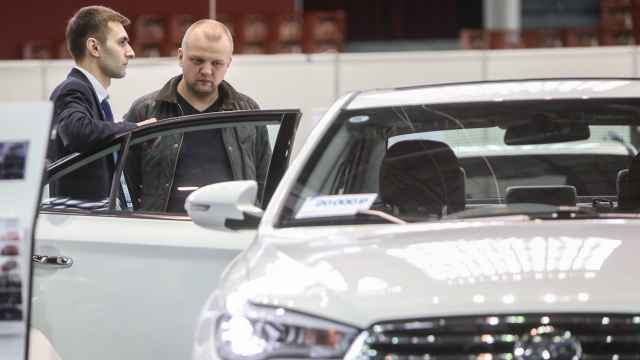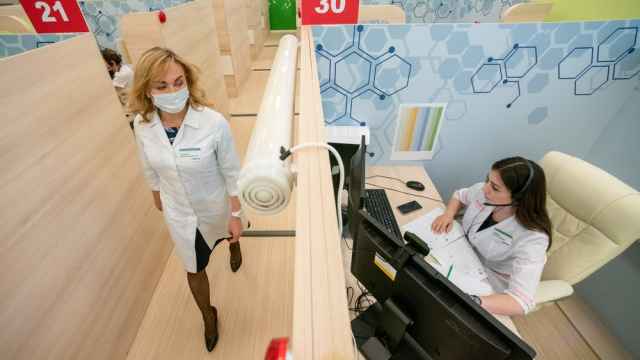The Russian economy is set to revert to its pre-coronavirus pattern of sluggish growth, weak investment and underwhelming living standards in 2022, economists predict, as the Kremlin re-embraces austerity after the initial impact of the Covid-19 pandemic.
While other countries have used the pandemic to overhaul their economic policies, launch ambitious investment projects or accelerate the green transition, Russia’s approach has been to get back to business-as-usual as soon as possible, seeing the fallout from the coronavirus as vindication of its stability-over-growth model, and will now double down on its ultra-conservative policies.
That means strong government finances and more pulling back from the global economy, resulting in lower growth and continued pressure on households, economists say.
“The authorities learned that their policy has worked — as far as they’re concerned. The ‘Fortress Russia’ approach has served them well and they probably can pat themselves on the back for that,” said Elina Ribakova, deputy chief economist at the Institute of International Finance (IIF) in Washington, D.C.
“Now, they are very focused on the macroeconomic situation, stability and their conservative policies. In turn, they’ve somewhat given up on regional policies and the policies of providing better quality services to people,” she added.
A return to austerity is reflected most clearly by independent forecasters’ predictions for meagre economic growth in the coming years.
The World Bank estimates Russia’s growth potential — a key indicator of how fast an economy can expand in normal times and which is seen as the best predictor of long-term prosperity — at below 2% a year.
“Russia still faces the challenge of raising its long-term growth rates … in large part, the constraints that were there prior to the pandemic remain,” said David Knight, the World Bank's lead economist for Russia.
The list of those constraints is long. It includes “adverse demographics, structural economic bottlenecks, a lack of far-reaching reform to diversify from the oil and gas sector’s dominant role in the economy, weak governance … high vulnerability to geopolitical risk … weak physical infrastructure, high income inequality and inefficient social safety nets,” according to Scope Ratings analyst Levon Kameryan.
Budget tightening
The government’s official tax and spending plans for the next three years, which passed through parliament in December, are a decent indication of how it looks set to approach the constraints and tackle the “dilemma between supporting higher growth and fiscal stability,” according to Sova Capital’s Artem Zaigrin.
The government has said it is targeting a significant budget surplus in 2022 of around 1% of GDP — or $15 billion. In other words, a return to savings.
That will further shore up Russia’s already impressive macroeconomic fundamentals.
Public debt is extremely low, at around 18% of GDP — and 80% of that is denominated in rubles, a form of protection should Moscow be hit with sanctions blocking its access to international financial markets. The current account — a measure of how much cash is flowing into Russia from the rest of the world — is set to come in at a record $125 billion in 2021.
That has helped the country’s international reserves surge by $40 billion over the last 12 months to stand above $620 billion at the Central Bank’s last count.
Proponents of a more growth-focused agenda will point to that expansion as yet more cash that could be put to work boosting growth and improving living standards — a criticism also thrown at Russia’s conservative economic framework ahead of the pandemic.
But that does not mean nothing has changed in the Kremlin’s approach to running the economy, says IIF’s Ribakova. She sees a move towards a much more short-term agenda over the last two years, where quick fixes such as higher benefit payments, one-off bonuses, or wage increases for public sector workers have been accepted as the main tool to support the economy, as opposed to the vast public investment programs which were once meant to haul Russia’s economy and outdated infrastructure into the modern age.
“I have even less hope that the national projects will boost GDP than before the pandemic,” Ribakova said, referring to the government’s ambitious $400-billion investment program.
“Some people were adding as much as two percentage points in annual GDP growth to their medium-term outlook — I don’t have hope for that anymore,” she added.
Ribakova says the government has realised “the limits of how much a centralized system can deliver productivity growth,” and could be cooling on the ambitious $400-billion investment program.
The national project plans, which cover everything from new roads, railways and bridges to housing renovation and healthcare improvements, were already falling behind schedule before the coronavirus hit. Now, with labor shortages, rising global commodies prices and a need to focus on more timely problems, like providing hospital beds and encouraging vaccination uptake, such longer-term projects could fall further down the Kremlin’s list of priorities.
“The best you can do is preserve macroeconomic stability and not waste money. If you can’t control implementation of the national projects from the center — which is very hard to do — then you might as well save the money. Basically, they worry about the fact that the money will be mismanaged, so you might as well save it,” Ribakova said.
Inflation risk
Sova Capital’s Zaigrin predicted that stricter rules on how much the government can tap into its sovereign wealth fund after years of underspending mean much of the investment obligation is likely to be placed on state-owned firms.
Energy majors like Gazprom and Rosneft will be expected to pour their billions of dollars of profits into building infrastructure around their crucial production sites and self funding ambitious new projects like a possible new gas link to China and Rosneft’s vast Arctic oil plans.
That makes Russia’s economic fortunes in any given year trickier to predict. A surprise wage increase for public sector workers, or cash handout for pensioners — such as Putin announced ahead of parliamentary elections — could deliver a shot in the arm to a flagging economy and boost growth rates. But it won’t do much to address the long list of medium-term problems.
Nor would it help in Russia’s ongoing battle with inflation. Despite early warnings in 2021 from governor Elvira Nabiullina that inflation was unlikely to be a passing trend, even the Central Bank has been caught out by how “sticky” inflation has proved to be.
That remains the “key macroeconomic risk,” going into 2021, said Ribakova.
Surging prices, too, have highlighted a key flaw in the government’s approach of prioritizing stability from international shocks over long-term growth and prosperity — rising public discontent.
High prices are routinely cited by Russians as the number one problem facing the country, and living standards are still down by around 10% compared to 2013. Putin has said the country needs to see real wage increases of at least 2.5% a year.
With inflation above 8% that means significant nominal pay rises across the country — something which raises the prospect of an inflation-wage spiral and could even undermine, or force a rethink of the government’s stability-first approach.
“Inflationary pressures are likely affecting the government’s popularity, which could lead to a revision of the conservative guidance and lead to more funds being used to maintain and improve living standards,” said Sova Capital’s Zaigrin.
A Message from The Moscow Times:
Dear readers,
We are facing unprecedented challenges. Russia's Prosecutor General's Office has designated The Moscow Times as an "undesirable" organization, criminalizing our work and putting our staff at risk of prosecution. This follows our earlier unjust labeling as a "foreign agent."
These actions are direct attempts to silence independent journalism in Russia. The authorities claim our work "discredits the decisions of the Russian leadership." We see things differently: we strive to provide accurate, unbiased reporting on Russia.
We, the journalists of The Moscow Times, refuse to be silenced. But to continue our work, we need your help.
Your support, no matter how small, makes a world of difference. If you can, please support us monthly starting from just $2. It's quick to set up, and every contribution makes a significant impact.
By supporting The Moscow Times, you're defending open, independent journalism in the face of repression. Thank you for standing with us.
Remind me later.



